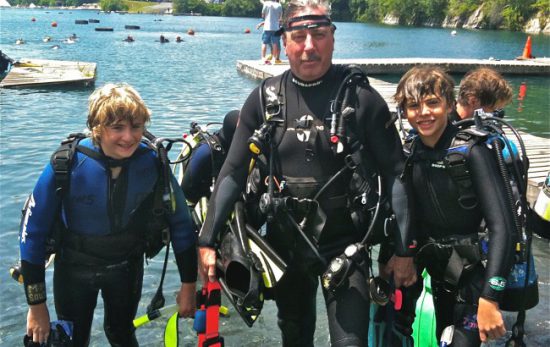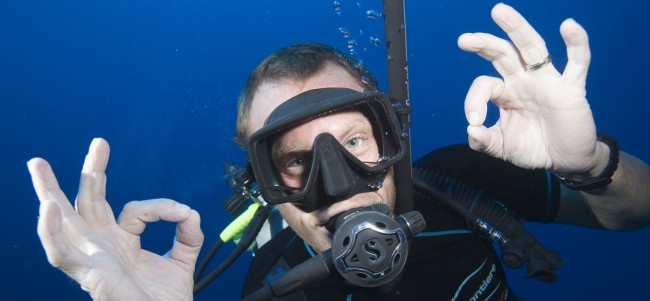“The only thing that separates us from the animals is our ability to accessorize” – Clairee Belcher
When it comes to dive equipment, your tank and regulator give you air, your mask helps you see, and your fins help you move. They are all essential pieces of equipment for diving. Scuba accessories are “nice-to-have” items but – depending on what diving you plan to do – can be just as important.
So, what are the key accessories every diver should have in their dive bag?
#1 Dive slates – Dive slates are underwater writing pads. You can write on them during your dive, and then rub it clean ready for the next dive. When hand signals aren’t enough, slates help divers communicate underwater. They are also handy for fish sightings notes and mapping, as well as for instructors to use as teaching reminders.
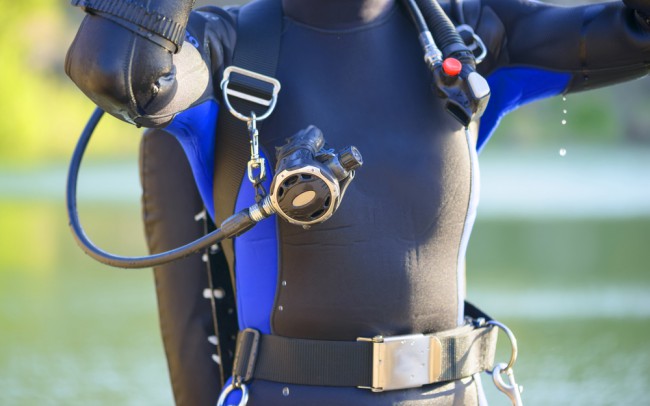
#2 Clips and lanyards – There are so many types available that we could easily write an entire article on clips and lanyards alone, but in short, they keep your gauges in the places you need to reach them, and your hoses neat and tidy. Use clips to secure your flashlight, your slates, reels, and anything you don’t want to drop during your dive.
#3 Spring fin straps – The standard straps that come with many fins can often wear and snap over time through being over-tightened or stepped on. Many divers (especially when wearing gloves) find it tricky to adjust the strap and ensure it’s locked in securely. Spring fin straps combat this issue as the springy strap can simply be pulled over the heel – eliminating the need to fiddle with strap adjustments before every dive.
#4 Zip tie wraps – These are plastic, adjustable ties which fasten with incredible strength. Use them to secure your new comfort mouthpiece on your regulator, or to secure a clip to your gauge. Zip ties are like duct tape for divers – their uses are endless. Make sure you keep a stash of them in your Save-a-Dive Kit.
#5 Comfort mouthpiece – Some divers find the ‘standard’ mouthpieces supplied with their regulator’s demand valve are too big, or too rigid and cause discomfort during the dive. Comfort mouthpieces are designed to be easier to grip and, in some cases even mould to the shape of your bite. Upgrade to one of these, and your jaw will thank you.
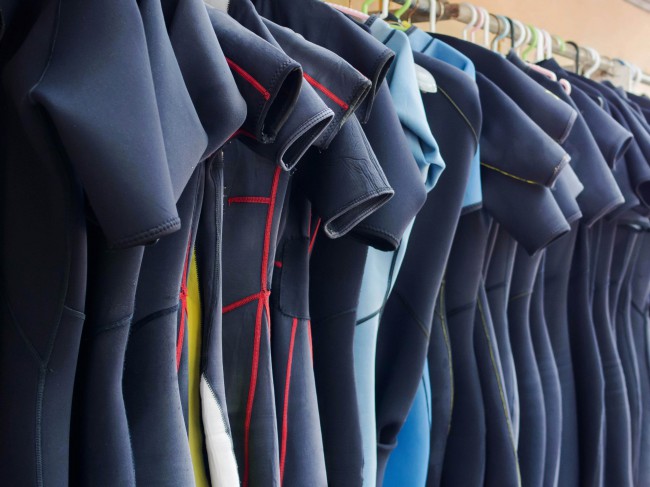
#6 Exposure suit hangers – One of the biggest heroes in the dive accessory department is the special hangers available for your wetsuit or dry suit. Hanging your wetsuit/dry suit will dry your suit faster and more securely to avoid damage (regular hangers don’t cut it). Hangers for booties and gloves also exist.
#7 Wetsuit Shampoo – Let’s face it, wetsuits can get stinky, especially if they’re left to fester at the bottom of your dive bag. Special shampoo for neoprene helps to remove algae, bacteria, chlorine and salt. Wash with this after a trip (and avoid these kit fails) and your gear will last longer and smell better.
#8 Mask defogger – We all know that our saliva is a free and natural way to help prevent mask fog. However, many find this technique somewhat off-putting – especially after eating! So, save your spit and get a bottle of mask defogger which does the job for you. Defog is also nice to have if you’re doing several dives in one day.
#9 Full-Sized Gear Bag – The gear transforming you into a merperson needs to travel with you somehow. We recommend you do it right with take it in dive-specific luggage that’s not only custom-built to protect your gear while standing up to but that can stand up to sun, saltwater and sumo-like baggage handlers. The trend in full-sized dive luggage is toward slightly smaller and decidedly lighter bags as airlines have gotten strict about luggage restrictions in recent years.
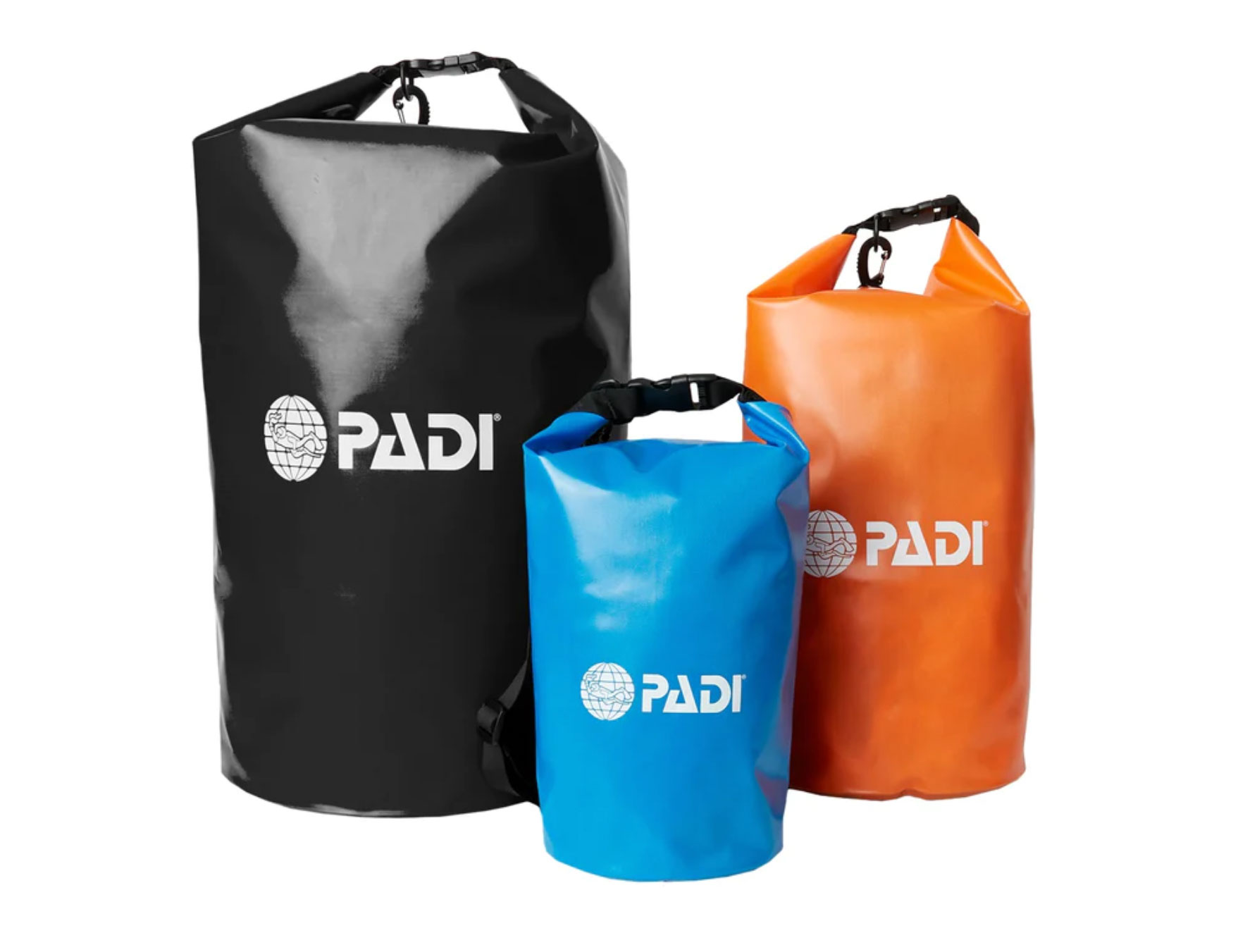
#10 Dry Bag – Let’s face it – few areas on a dive boat are safe from water. How do you make certain your wallet, cell phone, clothes and towel stay bone-dry while you’re out having wet fun? Your best bet is an airtight dry bag that will seal out water and moisture even if dropped overboard.
#11 Dive Light – It’s another world on the reef at night, and your passport to diving after dark is a trusty dive light. You need a good primary for night diving, of course, but a good pocket light is useful both as a backup light and for peering into crevices by day. Check out the latest dive light reviews from ScubaLab, Scuba Diving Magazine’s equipment testing team, for the best models on the market, and PADI’s Night Diver certification to access the wonderfully weird world of after-dark diving.
#12 Surface Signaling Device – Take it from us: Surfacing down-current a long, long way from the dive boat is one lonely feeling. You can’t always prevent it, but you can prepare for it with a good set of surface signaling gear. We recommend a tall, inflatable signal tube, an ear-splitting whistle, and a signaling mirror as standard equipment on every dive.
#13 GPS Rescue Device – Getting lost at sea is a nightmare for almost any diver, but you can put your mind at ease with a GPS rescue signaling device, such as the Nautilus Marine Rescue GPS. Once you activate the Nautilus, your GPS position is sent to surrounding boats — it also floats and can be taken to 130 meters/425 feet.
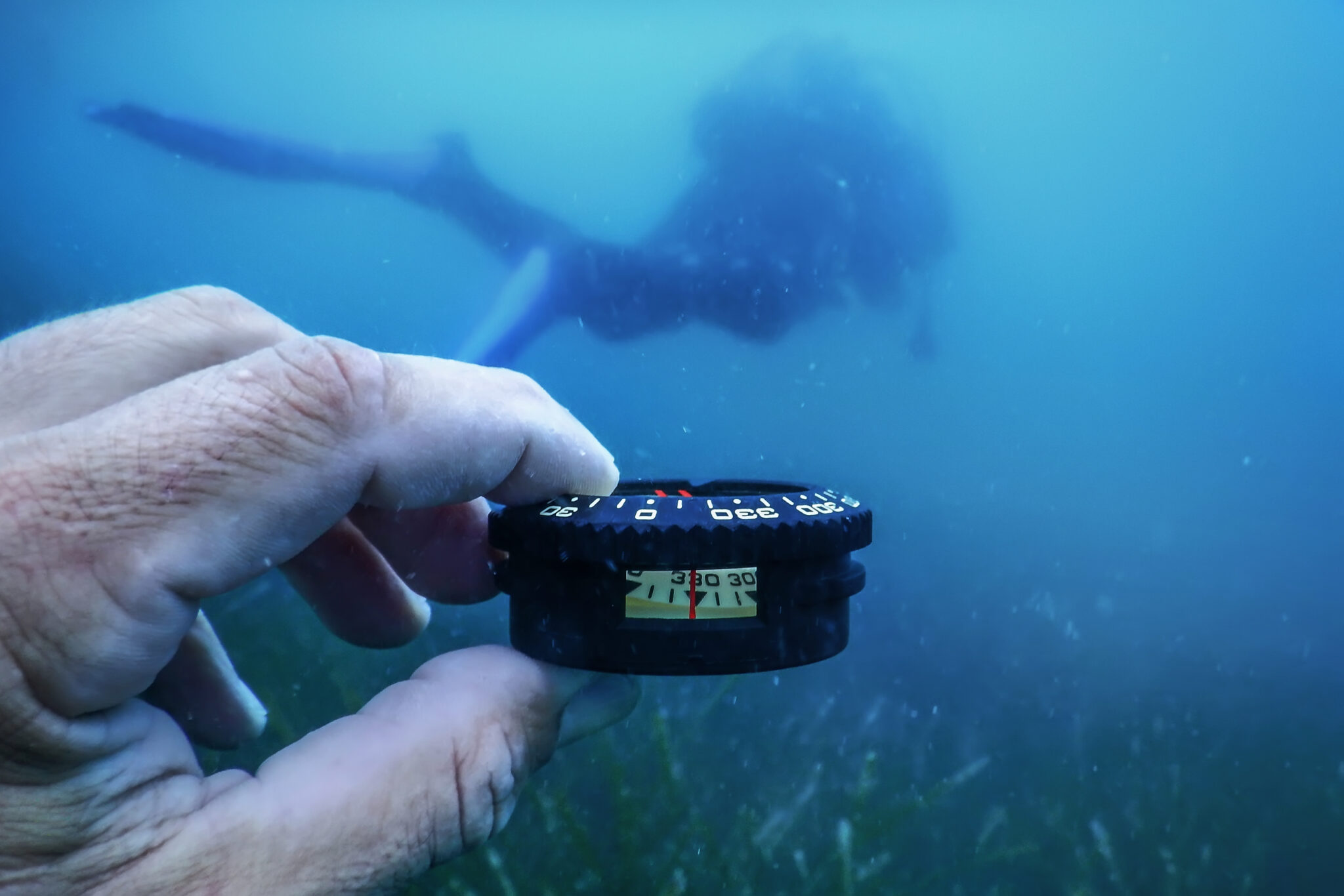
#14 Compass – You can’t ask the local stingray for directions back to your boat – that’s on you. Some computers include a digital compass, but you may need to use a good, old-fashioned compass in the event of a computer malfunction. If the closest you’ve ever come to a compass is watching Captain Jack use a magic one to find Shipwreck Island in Pirates of the Carribean, you can hone your wayfinding skills in PADI’s Underwater Navigator Speciality Course.
#15 “Save a Dive” Kit – Minor gear failures like a blown O-ring or leaky fitting won’t keep you from diving if you have the right backup parts and tools to engage in some basic field repair. A fully prepped dive kit includes items like new O-rings, a mask and fin straps, and zip ties.
#16 Dive Knife – Dive knives are aren’t for defending yourself against marine life or shaving off coral for a souvenir. What they are great for is for cutting tangled fishing wire from reefs, or disentangling yourself from kelp.The latest dive knife designs resist corrosion and hold a sharp edge longer than ever before.
#17 Tank Banger – Divers know the sound all too well — clank! clank! Tank bangers are perfect for divemasters pointing out critters in the blue or buddies who want to quickly capture the attention of another diver.
These are just a few of the accessories available from your local PADI Dive Shop that can enhance your diving experience. Did we miss any of your favorites?
